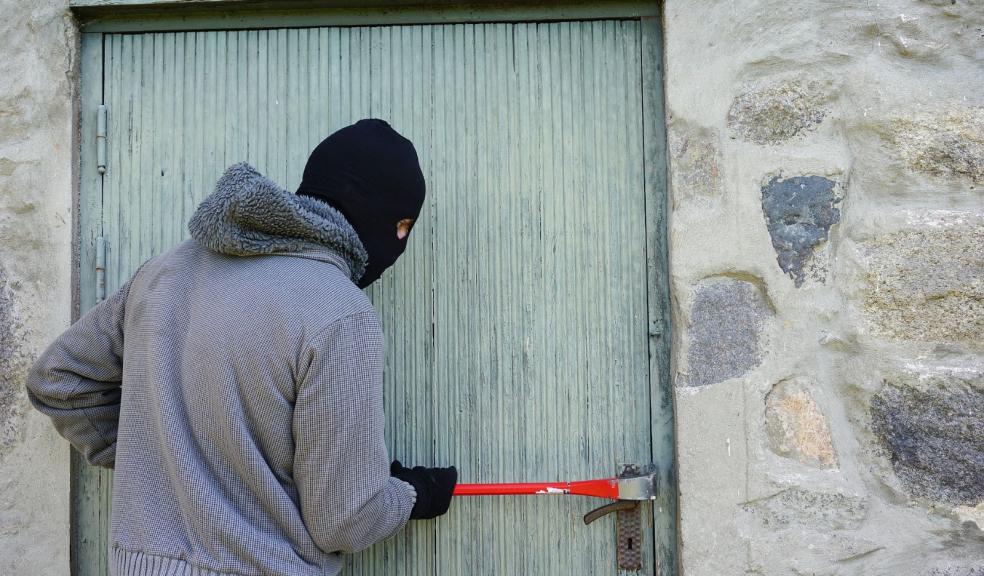
Canine crime: Expert tips to reduce the risk of pet abduction
With dogs being the most commonly stolen pet in the UK, dognapping is an ongoing issue that pet parents should be conscious of. But new laws which will make pet theft a criminal offence across the country could see those convicted of 'pet abduction' face a fine or a maximum five years in prison.
While these new proposals are a step in the right direction, it's important that dog parents are doing all they can to keep their four-legged friends safe. With this in mind, Allie Simpson, Content Manager at Petsure has provided their top tips for preventing dog theft, and what you should do in the event that your beloved pet does go missing.
-
Get your dog microchipped and keep the details up to date
It's the law in the UK to get your dog microchipped, and one of the reasons for this is to help reunite pet parents with their pups if they go missing. So make sure you keep your dog's microchip details up to date, for example if you move house, so you can be easily reached if they're found. Also double-check that your pet's records are held in a microchipping database that meets government standards.
Using a collar with an ID tag is also the law in the UK, and should include your name and address so rescuers have a way to reach you.
-
Think about dog theft prevention devices
You can pick up a range of dog theft prevention devices online and in pet stores. For example, anti-theft leads, collars, or harnesses that come reinforced with stainless steel to stop thieves being able to cut them. Meanwhile, if your dog does go missing, a GPS tracker lets you track their live location.
Just remember to do your research on the effectiveness of these devices, and whether they can be easily removed by thieves.
-
Don't leave your dog alone in public
Thieves are opportunists, so try not to leave your pup tied up outside a shop or restaurant. But don't be tempted to leave them in the car, as dogs can easily overheat.
-
Secure your home and garden
Having high fencing and a lockable gate can help to stop thieves from trying to take your dog from the garden. Make sure to secure any holes or fence sections that your pup might be able to wriggle through.
Other security measures could include home security systems like video cameras and sensored lights.
-
Be wary of who knows your location
When it comes to social media, be wary of tagging your location when uploading pictures of your dog, and be aware of who can see your posts. Potential thieves might be able to use this information to find out where you live or the areas you tend to go for walks.
With this in mind, switching up your walking routes and, if possible, the time of day you take your dog out can help keep you both safe.
-
Teach your pup good recall
Knowing your dog will come back to you when called will give you peace of mind while you're out and about. A recall cue is a separate word from your pups' name such as 'come' or 'here', to form a command such as 'Max, here' when you wish them to return to your side.
Always make sure to stay alert when walking your pup, and keep them close if you spot anyone acting suspicious nearby.
-
Check out doggy caregivers
If you're leaving your dog in the hands of a professional, whether that be a walker or sitter, make sure they're in safe hands. Do your research and check out reviews before committing, and don't be afraid to ask for proof of insurance.
-
Listen to your fellow dog community
Joining local online pet groups or forums can be a good way to keep up with news in your area. Members of the group may post reports of suspicious behaviour, and if your pup does go missing, this could be a helpful place to find information.
Allie Simpson, Content Manager at Petsure adds, "Pets really are part of the family, and if one goes missing, it can be an incredibly stressful situation. If you do think your pup has been stolen, try not to panic. Report this to the police, and give them as many details as possible. You can also contact your local vet, rescue centres, online community boards, and your dog's microchip database. It might also help to print off 'missing dog' posters to put up in your local area.
"All pet parents should think about having pet insurance to cover the basics, such as vet fees or emergency care. But, some providers, such as Petsure, also offer optional 'missing pet' cover, which can support you for things like advertising costs and rewards fees. It's always a good idea to make sure you're protected, so if the unthinkable happens and your dog is stolen, you're supported in your efforts to bring them back home."







